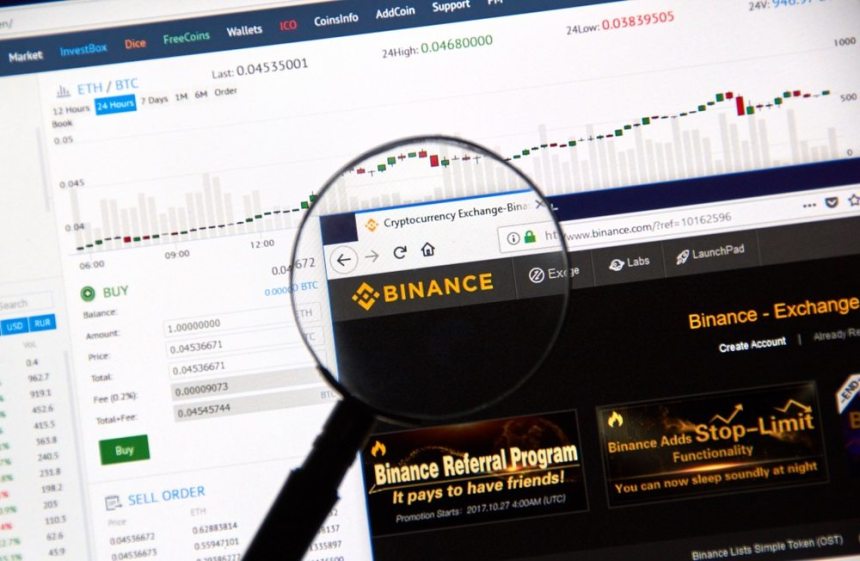Binance is taking an extra step into closer regulatory scrutiny as the cryptocurrency exchange plans to offer fiat-to-crypto trading to its customers.
The operator, which is now based in the European country of Malta, has been dodging regulation since inception in order to have some of the least rigorous know-your-customer (KYC) policies within the industry and supports initial coin offerings (ICOs).
Binance Embraces Regulatory Scrutiny with Euro Trading and UK Exchange License
One of the world’s largest digital currency exchanges by traded volumes, with $1.7 billion exchanging hands each day, is about to allow clients to cryptocurrencies into fiat currencies. Zhao Changpeng, CEO of Binance, headquartered in Malta, told Bloomberg that the euro, the official currency of the Eurozone which is controlled by the European Central Bank, will be the company’s next bet.
Binance will allow euro trading later in 2018 and eventually add more fiat currency options for its customers. The unavailability of cashing out digital tokens in fiat currency serve as a sound business model for many operators who look to avoid the regulatory trap associated with dealing official currencies on a trading platform.
Zhao added that Binance is also opening an office in Jersey, a self-governing dependency of the United Kingdom, where the company is about to receive an exchange license from the correspondent financial watchdog, the Financial Conduct Authority (FCA).
The regulator has recently provided U.S.-based cryptocurrency exchange Coinbase with an e-money license, which enables the operator to provide payment services and issue digital cash alternatives to be used for card, internet or phone payments. In May 2018, the FCA announced an investigation into 24 different cryptocurrency companies to determine whether they might be carrying on regulated activities that require FCA authorization.
In addition to the new office in Jersey, Zhao told Bloomberg that the company is in dialog with Taiwan authorities and banks in order to set up a shop in the country this year. Cryptocurrencies lost $42 billion of market value over the weekend after a hack at a South Korean exchange.
The exchange spent most of its young, but thriving business dodging regulation and transparency requirements. That was one of the company’s best attributes for its customers who approved those policies. The operator would even make it harder to determine which country has jurisdiction over the company by not disclosing the whereabouts of its offices and servers.
The company’s expansion to the European Union – with an office in Malta and Jersey and a potential U.K. FCA license – as well as allowing euro trading signals a shift from previous business policies.
Featured image from Shutterstock.
























i live in jersey……last time someone here spoke to the banks here about starting a crypto thing on the island they ousted him and froze all his accounts….
Was that before Malta began embracing this thriving new industry? If anybody can help them see the future and get on board instead of being left behind, it’s Changpeng Zhao.